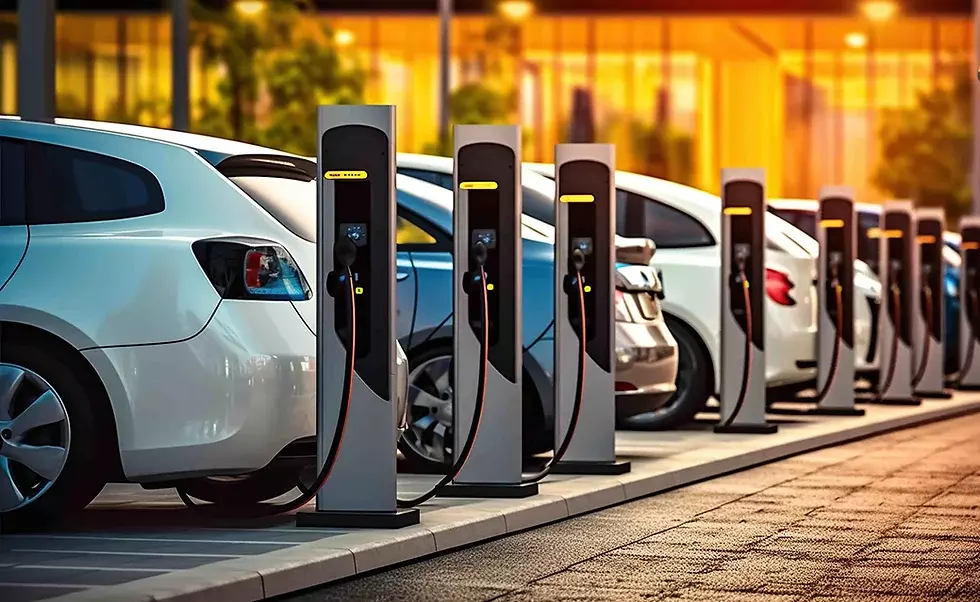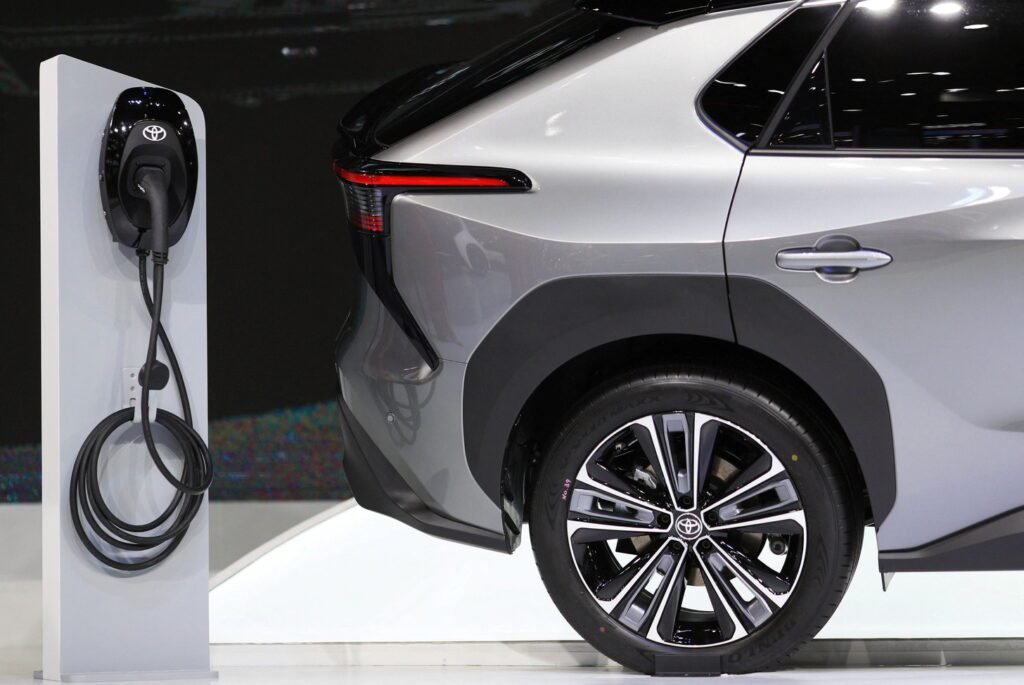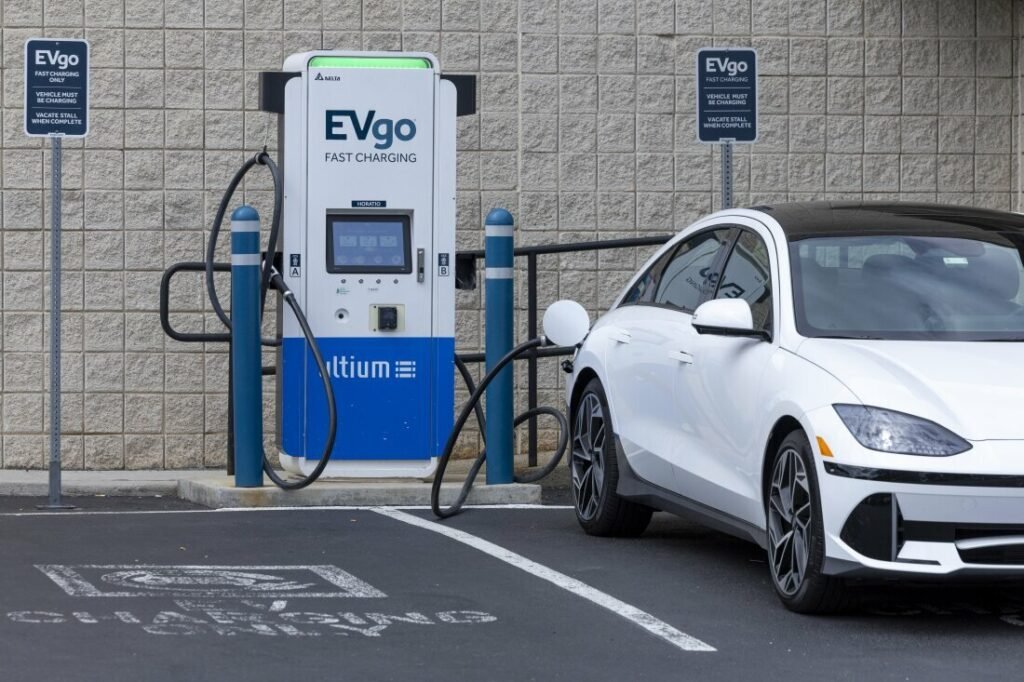
Discover the Benefits of Driving an Electric Car
In recent years, the automotive landscape has undergone a remarkable transformation, with electric cars leading the charge towards a more sustainable future. As concerns over climate change and rising fuel prices continue to dominate headlines, many drivers are turning their attention to the numerous advantages of embracing electric vehicles. From reducing our carbon footprint to enjoying significant savings on fuel and maintenance costs, electric cars offer a plethora of benefits that are hard to ignore. In this article, we will explore the compelling reasons why switching to an electric car is not just a trend, but a responsible choice that can positively impact both your wallet and the environment. Join us as we delve into the many perks that come with electrifying your ride.
Why Electric Cars Are the Future of Eco-Friendly Vehicles
As concerns about climate change and air pollution intensify, the push for sustainable transportation has become more urgent than ever. Electric cars, with their innovative technology and significantly reduced carbon footprints, are at the forefront of the movement towards eco-friendly vehicles. By utilizing electric power instead of traditional fossil fuels, these vehicles help minimize greenhouse gas emissions and contribute to cleaner air, making them a crucial player in the quest for a more sustainable future.
The advancements in electric car technology have dramatically improved their efficiency and driving range, dispelling many of the early concerns surrounding battery life and charging infrastructure. With an ever-growing network of charging stations and the development of faster charging options, owning an electric car has become increasingly convenient. Additionally, ongoing research and investment in battery technology promise to enhance performance, making electric vehicles more accessible and appealing to a broader audience.
Furthermore, the economic benefits of electric cars cannot be overlooked. The cost of ownership tends to be lower in the long run, thanks to significantly reduced maintenance expenses and the lower cost of electricity compared to gasoline. Governments around the world are recognizing the potential of electric vehicles to reduce reliance on oil and are offering incentives such as tax breaks and rebates to encourage widespread adoption. This supportive environment not only accelerates the transition to electric cars but also fosters innovation within the automotive industry.
As consumers become more environmentally conscious, the electric car market is poised for significant growth. With advancements in technology, regulatory support, and an increasing emphasis on sustainability, electric vehicles are set to become the standard for eco-friendly transportation. In this rapidly evolving landscape, embracing electric cars is not just a choice for individual consumers; it is a step towards a cleaner, greener planet for future generations.
 Understanding the Cost Savings of Owning an Electric Car
Understanding the Cost Savings of Owning an Electric Car
The rising popularity of electric cars is not merely a trend but reflects a growing awareness of both environmental concerns and the financial implications of vehicle ownership. One significant advantage of owning an electric car lies in the substantial savings on fuel costs. With electricity generally being cheaper than gasoline or diesel, charging an electric vehicle can lead to significant monthly savings. For those who charge at home, particularly during off-peak hours, the cost per mile can drop dramatically compared to traditional combustion engine vehicles. This reduction in fuel expenses can accumulate over the lifespan of the car, making electric vehicles an increasingly economical option.
In addition to fuel savings, electric car owners can benefit from reduced maintenance costs. Electric vehicles have far fewer moving parts than their gasoline counterparts, which translates to fewer maintenance requirements and lower costs. For instance, electric cars do not require oil changes, and their braking systems tend to experience less wear due to regenerative braking. This means that over time, owners may spend less on routine maintenance and repair services, providing further financial incentives for making the switch from gasoline to electric.
Moreover, many regions offer tax incentives and rebates for purchasing electric cars, which can offset the initial purchase price. These financial incentives, combined with lower operating costs, make electric vehicles an attractive choice for budget-conscious consumers. Additionally, as governments increasingly promote green initiatives, more charging infrastructure is being established, further easing concerns about range anxiety or the availability of charging stations. This progress enhances the overall affordability and accessibility of electric vehicles, making them a viable option for a broader audience.
Finally, it’s worth noting that the resale value of electric cars is on the rise as demand increases and technological advancements continue to improve battery life and performance. Owners who invest in electric vehicles now may find that they can recoup a significant portion of their initial investment when it comes time to sell. As the electric vehicle market matures, understanding the various cost savings associated with ownership will be crucial for potential buyers looking to make an informed and financially sound decision in today’s evolving automotive landscape.
 The Environmental Impact of Choosing an Electric Vehicle
The Environmental Impact of Choosing an Electric Vehicle
The decision to switch to an electric car can have significant ramifications for the environment, reflecting an emerging commitment to greener transportation solutions. As traditional internal combustion engine vehicles continue to dominate the streets, electric vehicles (EVs) present a valuable alternative that can help reduce greenhouse gas emissions. Unlike their gasoline-powered counterparts, electric cars produce zero tailpipe emissions, directly addressing urban air pollution and its detrimental effects on public health. By opting for an EV, individuals contribute to the mitigation of climate change, aligning their personal choices with broader environmental goals.
However, the environmental impact of electric cars extends beyond their operation. The production process—particularly the extraction of raw materials like lithium, cobalt, and nickel—poses its own set of ecological challenges. Mining these materials can lead to habitat destruction and pollution, often in regions with lax environmental regulations. Thus, while electric vehicles offer promising advantages in reducing carbon footprints during their operational life, it is crucial to consider the lifecycle of the vehicle from resource extraction to disposal. Sustainable practices in the sourcing of materials and advancements in battery recycling technologies are essential steps to ensure that the shift to electric mobility is genuinely beneficial for the environment.
Moreover, the source of electricity that powers electric cars plays a pivotal role in determining their overall environmental impact. If an electric vehicle is charged using energy from fossil fuels, its net emissions may still be significant, albeit less than those of traditional vehicles. Conversely, using renewable energy sources like solar or wind can substantially lower the carbon footprint associated with EVs, enhancing their role in sustainable transportation. As nations invest more heavily in renewable infrastructure, the positive environmental impact of choosing an electric car will only increase.
Ultimately, the decision to invest in an electric vehicle is not just a personal choice but also a societal one. It represents a commitment to reducing reliance on fossil fuels and fostering a cleaner, healthier planet. For consumers, this means not only enjoying the benefits of reduced operating costs and a quieter ride, but also participating in a larger movement towards sustainability. With advancements in technology and a growing awareness of environmental issues, electric cars stand as a pivotal component in the transition to a greener future, offering a pathway to mitigate some of the most pressing ecological challenges of our time.
 Top Features to Look for in an Electric Car
Top Features to Look for in an Electric Car
When considering the purchase of an electric car, there are several key features that potential buyers should keep in mind to ensure they make an informed decision. One of the most critical factors is the vehicle’s range on a single charge. As advancements in battery technology continue to evolve, many electric cars now offer ranges that can exceed 300 miles, significantly reducing range anxiety and making long-distance travel more feasible. Choosing a model with an adequate range for your daily driving needs is essential for a smooth and hassle-free experience.
Charging infrastructure is another vital aspect to consider when selecting an electric car. The availability of charging stations has expanded rapidly, but it’s important to assess the accessibility of both public charging networks and home charging options. Some vehicles come with fast-charging capabilities, allowing for quicker recharges at designated stations, while others may necessitate longer charging times at home. Understanding the charging logistics that align with your lifestyle will help you maximize the benefits of switching to an electric vehicle.
Additionally, technology features play a crucial role in enhancing the overall electric car experience. Infotainment systems, advanced driver assistance features, and connectivity options can make a significant difference in daily usability. Look for models equipped with user-friendly interfaces, smartphone integration, and navigation systems that can locate charging stations along your route. These tech-oriented features not only improve convenience but also contribute to safer driving experiences.
Finally, it’s essential to evaluate the overall cost of ownership when considering an electric car. While the initial price tag might be higher than that of gasoline vehicles, many electric cars offer lower operating costs in terms of fuel and maintenance. Governments in various regions also provide incentives and tax credits, which can offset the upfront costs. By taking into account these financial aspects along with performance and features, you can find the electric car that’s the best fit for your lifestyle, ultimately making a compelling case for the transition to electric mobility.
 Exploring the Performance Benefits of Electric Vehicles
Exploring the Performance Benefits of Electric Vehicles
The rise of electric vehicles (EVs) has revolutionized the automotive industry, bringing with it a host of performance benefits that are often overlooked in discussions dominated by environmental concerns. Electric cars, powered by advanced battery technology, deliver instant torque, resulting in faster acceleration compared to their internal combustion engine counterparts. This immediacy in power delivery allows electric vehicles to achieve remarkable sprint times, turning mundane commutes into exhilarating experiences. Drivers often report a thrilling sense of responsiveness when stepping on the accelerator, fostering a deeper connection to the driving experience.
Furthermore, the engineering of electric cars allows for a lower center of gravity, primarily due to the placement of the battery pack along the floor of the vehicle. This design contributes to enhanced stability and improved handling, factors that can be particularly beneficial in cornering situations. Many high-performance electric models also incorporate sophisticated all-wheel-drive systems that provide superior traction on various terrains, ensuring drivers benefit from exceptional control regardless of weather conditions. As a result, performance enthusiasts are beginning to recognize that electric vehicles not only meet but can exceed the capabilities of traditional sports cars.
In addition to their impressive drivability, electric cars often come equipped with advanced technology and features that augment their performance capabilities. Regenerative braking systems, common in EVs, allow for energy recovery during deceleration, which not only extends the vehicle’s range but also enhances overall efficiency. This innovative feature means that drivers can experience reduced wear on brake components, often leading to lower maintenance costs over time. The seamless integration of performance and sustainability presents a compelling case for electric vehicles as not just an eco-friendly alternative but as a viable choice for those seeking an exhilarating driving experience.
As the infrastructure for electric vehicles continues to expand, performance metrics of EVs will be further enhanced through advancements in battery technology and charging solutions. Innovations such as faster charging stations and improved energy densities are paving the way for electric cars to become even more practical and powerful. With manufacturers increasingly focused on performance, the electric vehicle market represents a new frontier of possibilities, where sustainable mobility meets high-octane excitement, inviting drivers to partake in a transformative automotive journey.

 The Environmental Impact of Choosing an Electric Vehicle
The Environmental Impact of Choosing an Electric Vehicle Top Features to Look for in an Electric Car
Top Features to Look for in an Electric Car Exploring the Performance Benefits of Electric Vehicles
Exploring the Performance Benefits of Electric Vehicles











